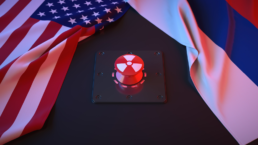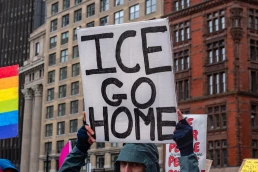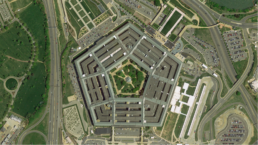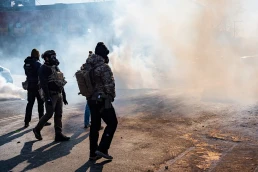Rising geopolitical and geo-economic tensions across the globe need a better, reformed, and updated UN system which reflects the growing multipolarity and is more representative, unbiased, and effective
United Nations Secretary General António Guterres presented a new policy brief on global security on Thursday, July 20, which calls for the abolition of all nuclear weapons and widespread reforms in the UN structure to make it more representative and efficient.
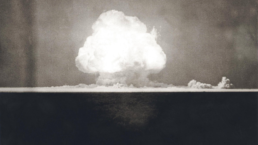
The New Agenda for Peace policy brief, based on the discussions during the 75th anniversary celebrations of the foundation of the UN in 2020, is part of the preparations for the UN Summit of the Future to be held in 2024.
While launching the brief, Guterres acknowledged that “the post-Cold war period is over, and we are moving towards a new global order and a multipolar world.” The changing world is marred by a new set of geopolitical and geo-economic conflicts with rising “insecurity about the threat of nuclear war” and growing skepticism among a large number of member states about the existing forums of multilateralism.
The brief claims that most of the challenges to global security and peace are interlinked and proposes ways to address this complexity.
Complex nature of rising conflicts
The brief notes that increasing geo-strategic tensions and competition across the globe is pushing global military expenditure to an unprecedented level. In 2022, the cumulative global defense expenditure exceeded $2.24 trillion.
The brief also points out that several arms control regimes created during the Cold War and its immediate aftermath, which were containing great power rivalries, have been eroded in the last few years, which has increased the risk of regional and global wars and paved the way for an arms race.
Competition on the military front is supplemented with growing trade or geo-economic wars over trade of conventional commodities and the supply of technologies (semiconductors to China, for example) and rare minerals from Africa and other parts of the world, leading to regional and global tensions.
As per the brief, in 2022, the number of conflict-related deaths reached a 28-year-high. The majority of the 108 million people displaced last year globally were also driven by the conflicts.
However, conflict should not only be seen as armed confrontation between two parties or nations. Between 2015 and 2021, more than 3.1 million people lost their lives due to intentional homicide. Over 700,000 deaths in armed conflicts in the same period pales in comparison.
The deteriorating rule of law and rise in economic, regional, and gender inequalities as well as climate-related causes are pushing the world towards more conflict and violence.
However, the reverse is also true, as all kinds of armed conflicts have a “negative effect on the attainment of Sustainable Development Goals (SDGs)” and addressing the issues of inequalities.
Amid all this, we are also witnessing growing attempts to weaponize emerging technologies by some countries, which prevents democratic use of technology for human development and creates a new kind of arms race.
Five priority areas and 12 steps to achieve collective security
The brief proposes that trust, solidarity and universality—the well-known principles of the UN charter—would be the basis of its agenda for peace. Guterres emphasized the role of cooperation among nations, saying that it “does not require states to forego their national interest, but to recognize that they have shared goals.”
The brief recommends a 12-point plan of action, divided in five priority areas, to address the growing threats to peace at the global level.
It calls for the elimination of all nuclear weapons and boosting preventive diplomacy to address strategic risks and geopolitical divisions in the world.
It also calls for preventing domestic conflicts by adopting sustainable development methods and catering to climate-related issues and social discrimination with increased funding and help to developing countries to achieve their SDGs by 2030. Peacekeeping and peace enforcement, as well as regional initiatives of peace, should also be updated and strengthened. There should also be steps taken to prevent weaponization of emerging domains and technologies, such as artificial intelligence (AI), and promotion of responsible innovation.
It additionally calls for reforms in the UN system, including in the Security Council to make it more “just and representative,” and talks about countries respecting the impartiality of the UN secretariat so that it can work more effectively as a multilateral forum.
Recent Posts
Save New START- Nuclear Arms Treaties Must Not Expire
January 27, 2026
Take Action Now Letting New START expire would end more than a treaty — it would end the last remaining restraint on nuclear escalation.By Leah…
The Senate Must Not Fund ICE
January 26, 2026
Take Action Now The money fueling ICE’s abuses comes directly out of the pockets of working Americans who are already struggling.By Sonali…
Despite Authoritarian Warnings, 149 House Democrats Vote to Hand Trump $840 Billion for Military
January 26, 2026
Take Action Now “If an opposition party votes like this, it’s not in opposition. It may not even be a party.”By Jon Queally, Common Dreams Despite…
CBP Agent Guns Down Minneapolis Nurse: Video Analysis
January 25, 2026
Take Action Now Meghnad Bose, Rana Roudi, and Ryan Grim break down video obtained by Drop Site showing CBP’s killing of Alex Jeffrey Pretti on…

